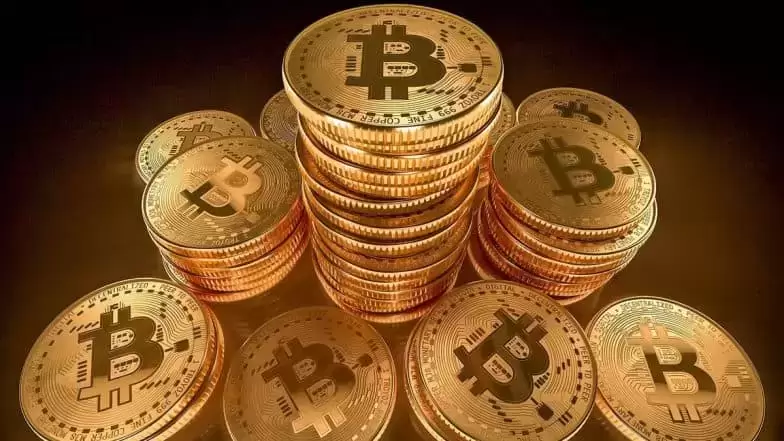 |
|
 |
|
 |
|
 |
|
 |
|
 |
|
 |
|
 |
|
 |
|
 |
|
 |
|
 |
|
 |
|
 |
|
 |
|
比特幣作為一個分散且無邊界的數字資產,存在於更廣泛的全球環境中,受地緣政治緊張局勢和監管框架的影響很大。
Bitcoin, a decentralized and borderless digital asset, exists within a broader global context that is heavily influenced by geopolitical tensions and regulatory frameworks. These external factors can shape the demand, adoption, and growth of Bitcoin, especially following significant events like the 2024 halving.
比特幣是一種分散且無邊界的數字資產,存在於更廣泛的全球環境中,受地緣政治緊張局勢和監管框架的影響很大。這些外部因素可以影響比特幣的需求,採用和增長,尤其是在2024年減半之類的重大事件之後。
Given Bitcoin’s potential to serve as a store of value, a hedge against inflation, and a means of financial independence, understanding the intersection of geopolitics and regulation is essential for predicting its trajectory in the post-halving environment.
鑑於比特幣有潛力作為價值存儲,抵抗通貨膨脹的對沖以及一種財務獨立性,了解地緣政治和監管的交集對於預測其在備用後環境中的軌跡至關重要。
In this section, we will explore how global political instability, international conflicts, economic sanctions, and regulatory measures can affect Bitcoin’s market dynamics and long-term viability.
在本節中,我們將探討全球政治動盪,國際衝突,經濟制裁和監管措施如何影響比特幣的市場動態和長期可行性。
1. Geopolitical Instability and Bitcoin as a Safe-Haven Asset
1。地緣政治不穩定和比特幣作為安全資產
Political and Economic Sanctions
政治和經濟制裁
Geopolitical tensions can lead to political and economic sanctions imposed by governments and international bodies, often aimed at limiting a country’s access to global financial systems. Countries that face sanctions are often forced to find alternative ways to conduct international trade, preserve wealth, and avoid restrictions on their financial systems. This is where Bitcoin’s decentralized nature can become highly appealing.
地緣政治緊張局勢可能導致政府和國際機構實施的政治和經濟制裁,通常旨在限制一個國家進入全球金融體系的機會。面臨制裁的國家經常被迫尋找替代方法來進行國際貿易,保留財富並避免對其金融體系的限制。在這裡,比特幣的分散性質可以變得極具吸引力。
For example, during the 2014 Crimean crisis, when Western sanctions crippled the Russian economy and limited its ability to trade internationally, there was a surge in interest and adoption of Bitcoin in Russia. Bitcoin provided a way to circumvent the sanctions and continue international trade and commerce.
例如,在2014年克里米亞危機期間,當西方制裁削弱了俄羅斯經濟並限制了其國際交易的能力時,俄羅斯的興趣和採用比特幣激增。比特幣提供了一種規避制裁併繼續國際貿易和商業的方法。
Similarly, in Iran, which has been under U.S. sanctions for decades, Bitcoin has gained popularity as a means to preserve wealth and facilitate international transactions despite the country’s limited access to the global financial system.
同樣,在伊朗一直在美國製裁的伊朗數十年中,比特幣在維護財富並促進國際交易的一種手段中獲得了普遍性,儘管該國對全球金融體系的機會有限。
2. Bitcoin’s Role in Global Trade and Financial Sovereignty
2。比特幣在全球貿易和金融主權中的作用
Bitcoin as a Tool for Financial Sovereignty
比特幣是財務主權的工具
In a world where trade wars and currency devaluation are becoming more prevalent, Bitcoin’s decentralized structure offers a form of financial sovereignty that is not tied to any single country or centralized authority. This could make it an important asset for individuals and nations that are concerned about losing control over their monetary systems.
在一個貿易戰和貨幣貶值變得越來越普遍的世界中,比特幣的分散結構提供了一種與任何單一國家或集中權威無關的財務主權形式。對於關心失去對貨幣系統的控制權的個人和國家來說,這可能使其成為重要的資產。
For example, during the 2018 trade war between the United States and China, both countries engaged in tit-for-tat tariffs and currency manipulations, leading to economic instability and a loss of trust in fiat currencies. In response, there was a growing interest in Bitcoin as a neutral and decentralized store of value that could help preserve wealth and protect against currency devaluation.
例如,在2018年美國與中國之間的貿易戰爭期間,這兩個國家都從事賣出稅率的關稅和貨幣操縱,導致經濟不穩定和對法定貨幣的信任喪失。作為回應,人們對比特幣作為中立和分散的價值存儲越來越興趣,可以幫助保護財富並防止貨幣貶值。
3. Bitcoin’s Response to Regulatory Pressures
3。比特幣對監管壓力的反應
While Bitcoin’s decentralized nature makes it resistant to direct control by any single government, it is still subject to the regulatory environment of the countries where it is used. Regulatory frameworks are one of the most significant factors influencing Bitcoin’s adoption and growth, particularly after the 2024 halving. The degree to which Bitcoin is embraced or restricted by various countries will have far-reaching implications on its future.
儘管比特幣的分散性質使任何單一政府的直接控制具有抵抗力,但它仍然受到使用的國家的監管環境的影響。監管框架是影響比特幣採用和增長的最重要因素之一,尤其是在2024年減半之後。比特幣被各個國家所接受或限制的程度將對其未來具有深遠的影響。
Positive Regulation: Clarity and Legitimacy
積極法規:清晰度和合法性
Some countries are embracing Bitcoin and cryptocurrencies by providing clear, positive regulatory frameworks that foster innovation and adoption. Positive regulation typically includes:
一些國家通過提供明確,積極的監管框架來促進創新和採用,從而擁抱比特幣和加密貨幣。正面法規通常包括:
- Recognizing Bitcoin as a legal asset or property
- 將比特幣視為合法資產或財產
- Establishing clear rules for cryptocurrency exchanges and businesses
- 制定加密貨幣交易所和企業的明確規則
- Providing guidance on taxation and reporting requirements for digital assets
- 提供數字資產的稅收和報告要求指南
Positive regulation helps to legitimize Bitcoin and make it more accessible to institutional investors and mainstream users. For example, in the United States, the Commodity Futures Trading Commission (CFTC) has taken a relatively hands-off approach to regulating Bitcoin, classifying it as a commodity and allowing for the launch of Bitcoin futures ETFs. This has contributed to the growth and mainstream adoption of Bitcoin in the U.S.
積極的法規有助於使比特幣合法化,並使機構投資者和主流用戶更容易獲得。例如,在美國,商品期貨貿易委員會(CFTC)採取了一種相對失調的方法來調節比特幣,將其歸類為商品,並允許啟動比特幣期貨ETF。這有助於比特幣在美國的增長和主流採用
Negative Regulation: Restrictive Measures and Bans
負法規:限制性措施和禁令
While some countries have welcomed Bitcoin, others have taken a more cautious or hostile stance. Negative regulation typically manifests in:
儘管有些國家歡迎比特幣,但其他國家採取了更加謹慎或敵對的立場。負調節通常表現為:
- Outright bans on Bitcoin and other cryptocurrencies
- 完全禁止比特幣和其他加密貨幣
- Restrictive licensing requirements for cryptocurrency exchanges
- 加密貨幣交換的限制性許可要求
- Heavy taxation and reporting burdens on digital assets
- 對數字資產的徵稅和報告負擔
Negative regulation can stifle the adoption and growth of Bitcoin in those countries. For example, in China, where Bitcoin was once thriving, a series of crackdowns and bans on cryptocurrency exchanges and mining operations led to a significant decline in Bitcoin activity and drove many Chinese users to the black market.
負法規可以扼殺那些國家的比特幣的採用和增長。例如,在中國,比特幣曾經蓬勃發展,對加密貨幣交易所和採礦業務進行了一系列鎮壓和禁令,導致比特幣活動大幅下降,並將許多中國用戶推向了黑市。
Global Regulation: Coordination and Consensus
全球法規:協調和共識
The future of Bitcoin’s regulation depends on how global governments choose to approach cryptocurrency in the coming years. A global consensus or coordinated regulatory approach would provide a more stable and secure environment for Bitcoin and other digital assets. However, there are significant challenges to achieving such coordination due to the varied interests of countries.
比特幣法規的未來取決於全球政府在未來幾年中如何選擇接近加密貨幣。全球共識或協調的監管方法將為比特幣和其他數字資產提供更穩定,更安全的環境。但是,由於各國的各種利益,實現這種協調面臨巨大挑戰。
4. Bitcoin’s Role in the Future Financial System
4。比特幣在未來金融體系中的作用
Despite the regulatory challenges, Bitcoin’s role as a global digital asset is becoming increasingly important in the context of a rapidly changing financial system. As central banks and governments explore the potential of central bank digital currencies (CBDCs) and other blockchain-based solutions, Bitcoin is positioning itself as a non-sovereign alternative to government-backed currencies.
儘管面臨監管挑戰,但比特幣作為全球數字資產的作用在迅速變化的金融體系的背景下變得越來越重要。隨著中央銀行和政府探索中央銀行數字貨幣(CBDC)和其他基於區塊鏈的解決方案的潛力,比特幣將自己定位為政府支持的貨幣的非主管替代品。
Whether it becomes a global reserve asset, a mainstream
它是否成為全球儲備資產,都是主流
免責聲明:info@kdj.com
所提供的資訊並非交易建議。 kDJ.com對任何基於本文提供的資訊進行的投資不承擔任何責任。加密貨幣波動性較大,建議您充分研究後謹慎投資!
如果您認為本網站使用的內容侵犯了您的版權,請立即聯絡我們(info@kdj.com),我們將及時刪除。
-

- 代幣燒傷的戰略重要性:探討著著名加密資產的最新事件
- 2025-04-20 15:10:12
- 加密貨幣界的一種普遍做法是令牌燃燒,旨在減少數字資產的整體循環供應。
-

-

-

- 加密貨幣市場在復活節週末相對混雜
- 2025-04-20 15:05:13
- 在復活節週末,加密貨幣市場相對混雜,數量保持較低。比特幣被困在$ 84,000至85,000美元之間
-

-

-

- SUI在2025年超過5億交易,表現優於主要區塊鏈
- 2025-04-20 14:55:12
- 分析師預測,隨著交易量的增加和用戶群的增長,SUI價格可能會導致超過2.17美元的突破。
-

-

- Unichain可能是使Uni價格轉移並引發Uni突破的催化劑
- 2025-04-20 14:50:12
- 像許多其他Altcoins一樣,Uni也很難找到堅實的立場,一路上損失了其價值的70%以上。




























































